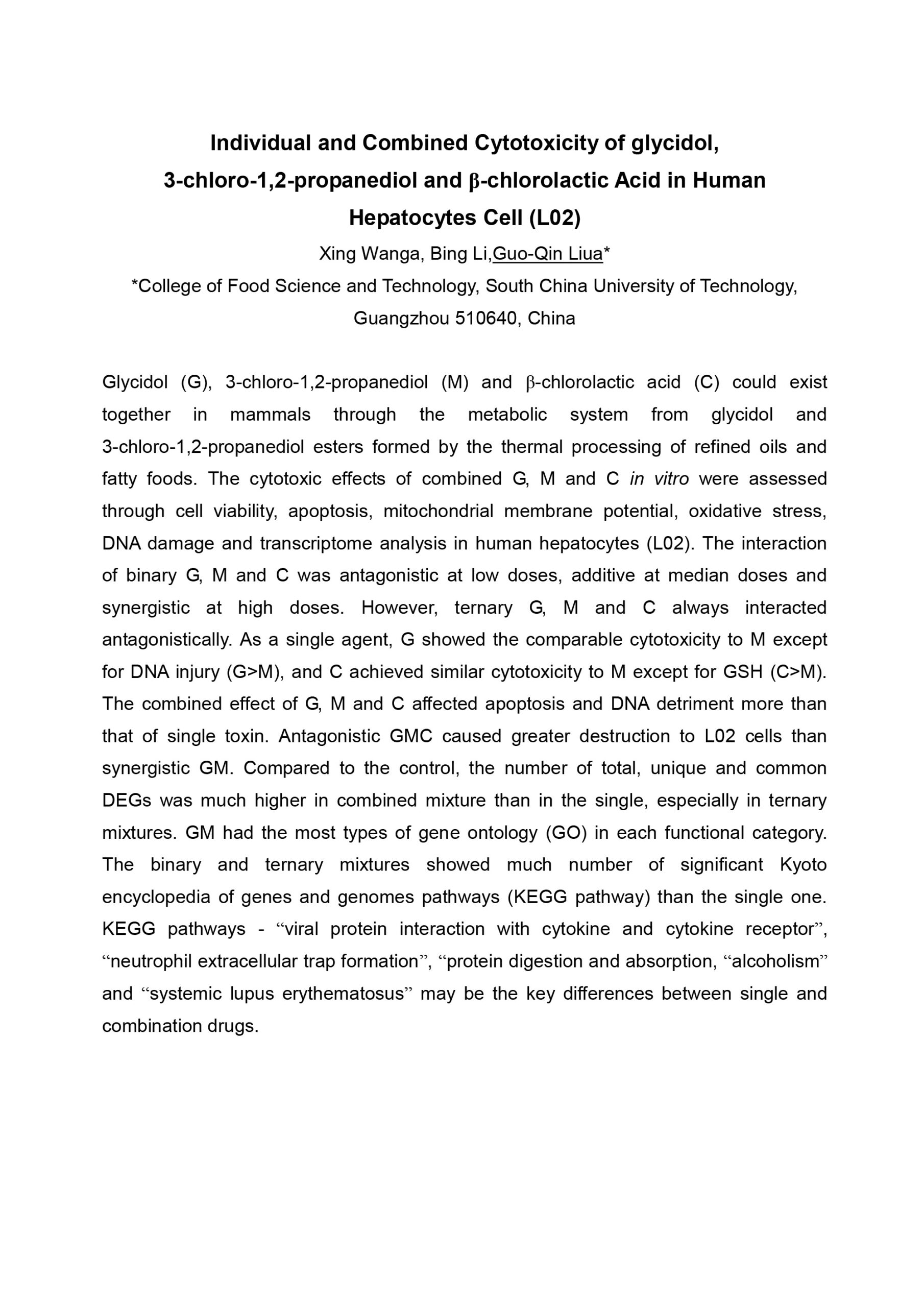Glycidol (G), 3-chloro-1,2-propanediol (M) and β-chlorolactic acid (C) could exist together in mammals through the metabolic system from glycidol and 3-chloro-1,2-propanediol esters formed by the thermal processing of refined oils and fatty foods. The cytotoxic effects of combined G, M and C in vitro were assessed through cell viability, apoptosis, mitochondrial membrane potential, oxidative stress, DNA damage and transcriptome analysis in human hepatocytes (L02). The interaction of binary G, M and C was antagonistic at low doses, additive at median doses and synergistic at high doses. However, ternary G, M and C always interacted antagonistically. As a single agent, G showed the comparable cytotoxicity to M except for DNA injury (G>M), and C achieved similar cytotoxicity to M except for GSH (C>M). The combined effect of G, M and C affected apoptosis and DNA detriment more than that of single toxin. Antagonistic GMC caused greater destruction to L02 cells than synergistic GM. Compared to the control, the number of total, unique and common DEGs was much higher in combined mixture than in the single, especially in ternary mixtures. GM had the most types of gene ontology (GO) in each functional category. The binary and ternary mixtures showed much number of significant Kyoto encyclopedia of genes and genomes pathways (KEGG pathway) than the single one. KEGG pathways – “viral protein interaction with cytokine and cytokine receptor”, “neutrophil extracellular trap formation”, “protein digestion and absorption, “alcoholism” and “systemic lupus erythematosus” may be the key differences between single and combination drugs.
